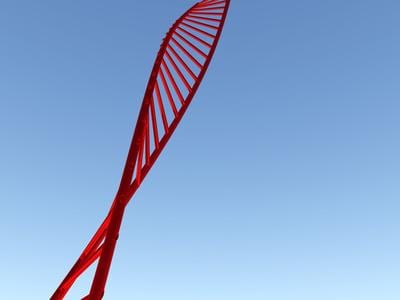Trisomy 21, more commonly referred to as Down syndrome, is a condition in which the developing fetus inherits an extra chromosome. According to statistics reported by the Kids Health website, Down syndrome affects approximately one of 800 babies born in the United States each year. Children with Down syndrome can be both physically and mentally delayed. Although doctors cannot prevent the condition, they can detect it by evaluating risk factors and test results.
Risk Factors
Advanced maternal age is one risk factor for having a baby born with Down syndrome. By age 35, a pregnant woman stands a 1 in 350 chance that her baby is carrying the extra chromosome. By age 40, it is 1 in 100. When looking at maternal age alone, doctors can accurately predict Down syndrome 30 percent of the time. The American Congress of Obstetricians and Gynecologists (ACOG) reports a previous pregnancy resulting in a child born with Down syndrome, or a family history of Down syndrome, is another risk factor.
Screening Tests
A series of screening tests can evaluate the risk of a baby being born with Down syndrome. However, screening tests do not offer definitive answers, nor are the results always accurate. Health care professionals offer basic screening tests to detect birth defects and chromosomal abnormalities, including Down syndrome, to every expectant mother. Depending on the mother’s inherent risk factors, screening tests are the first step when deciding if further testing is necessary. Between week 11 and week 14, a doctor performs a first trimester screening, which includes a blood test and basic ultrasound. During the ultrasound, the doctor measures the thickness of the base of the neck. The greater the space, the more likely the baby has Down syndrome. First trimester screening tests detect Down syndrome with 82 to 87 percent accuracy. A second trimester screening at week 15 to week 20 calls for additional blood testing and a more detailed ultrasound. Combined, the first and second trimester screenings detect Down syndrome 90 to 95 percent of the time, according to the ACOG.
Diagnostic Tests
If early screenings warrant further, more conclusive testing to determine if a developing baby has Down syndrome, a health care professional may opt for diagnostic tests. When there is a strong possibility the fetus has the condition, early screenings may be skipped altogether in lieu of diagnostic testing. These tests first include detailed ultrasounds. They might also include amniocentesis, in which fluid from the amniotic sac is drawn and tested, and chorionic villus sampling, in which a sample of cells from the placenta is retrieved for study. According to the Kaiser Network, there is a 1 percent risk of miscarriage reported with amniocentesis and chorionic villus sampling.
Photo Credit
- dna 10 image by chrisharvey from Fotolia.com





